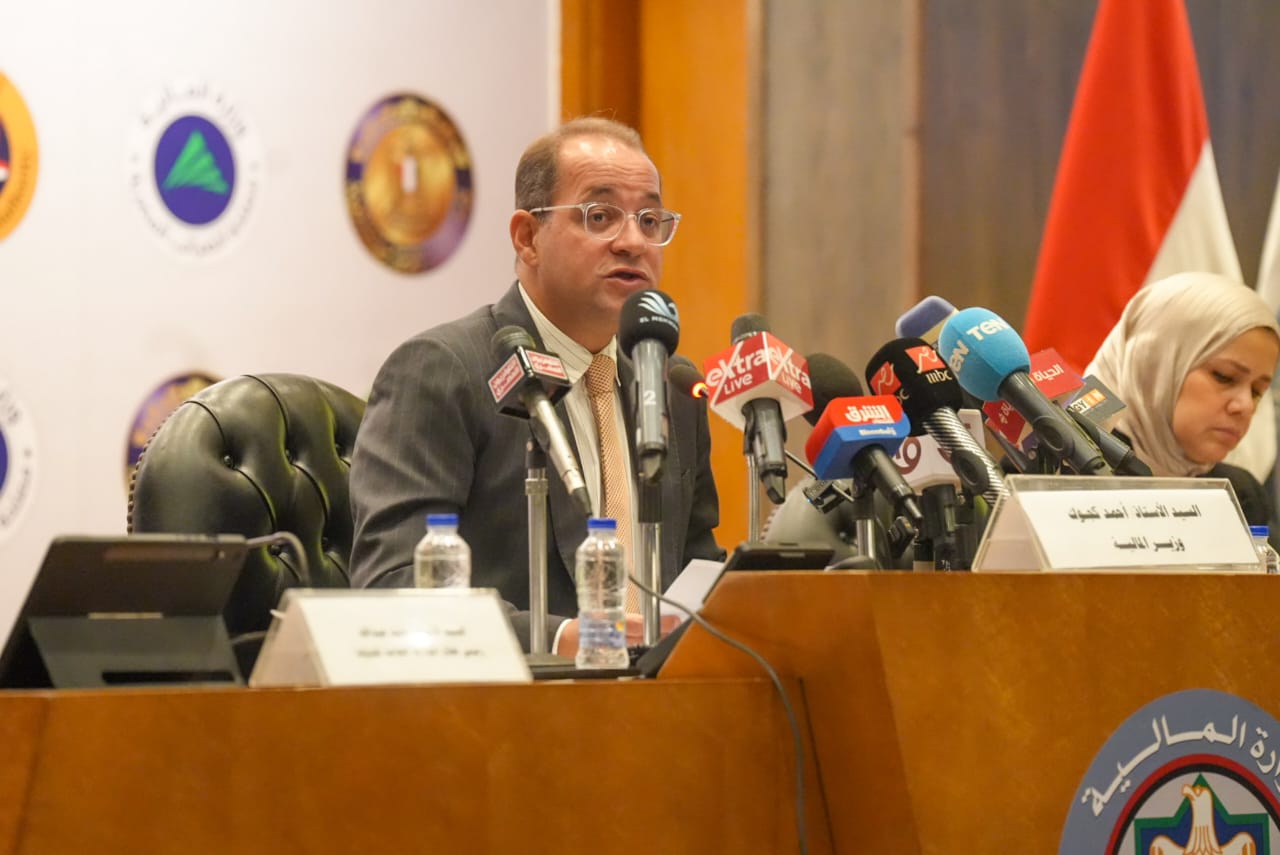Dr. Ahmed Kojok, Egypt’s Minister of Finance, announced that the 2025/2026 fiscal budget embodies a strategy centered on growth, stability, and partnership, with a strong emphasis on boosting economic activity and improving citizens’ living standards despite ongoing global economic challenges. The announcement was made in the twelfth edition of the annual “Citizen’s Budget” report, designed to promote transparency and public participation in financial governance. n nAccording to Kojok, the budget goes beyond a mere financial plan—it reflects a comprehensive national vision. It prioritizes vital sectors such as education and healthcare, while expanding the social protection network to reach the most vulnerable groups. Allocations totaling 742.6 billion Egyptian pounds will support cash assistance, subsidized goods, health insurance, housing initiatives, natural gas access, and school nutrition programs. n nThe upcoming fiscal period will introduce a new package of tax incentives aimed at stimulating private sector investment and broadening the economic growth base. The minister emphasized the importance of involving citizens in financial decision-making, starting at the local level in villages and governorates, through community consultations that help identify real spending priorities. n nYasser Sobhi, Deputy Minister of Financial Policies, explained that the new budget strikes a balance between fiscal stability and economic expansion, with a clear focus on social equity. Key allocations include 160 billion pounds for food subsidies, 150 billion for energy support, and 54 billion for the ‘Takaful and Karama’ social welfare programs, alongside continued funding for education, healthcare, and school feeding. n nSara Eid, Advisor to the Minister for Transparency and Community Engagement, highlighted that the “Citizen’s Budget” has become a model social contract between the state and its people since its inception 12 years ago. She announced the launch of the first national competition via social media platforms to engage youth in analyzing and contributing to the budget report, empowering them to understand fiscal policy and participate in governance. n nShe noted that Egypt’s participatory budgeting model has become a key tool for building trust between citizens and the government. Currently implemented in six governorates—including Beni Suef, Minya, Damietta, Fayoum, Alexandria, and Assiut—the model helps tailor spending priorities to local needs. Field visits and public listening sessions, such as a recent trip to Beni Suef, ensure that budget planning reflects real citizen demands and supports the sustainability of economic and financial reforms. n nEid added that Egypt has made significant strides in international transparency rankings. The Open Budget Index rose from 13/100 in 2012 to 49/100 in 2023, surpassing the global average. Egypt now ranks eighth globally in the ‘Public Participation Index’ and leads the Middle East and North Africa region. n nShe concluded by reaffirming that citizens are at the heart of the budgeting process. The ministry’s goal is to empower individuals to become active partners in shaping public policy through direct engagement, knowledge dissemination, and a steadfast commitment to transparency and accountability. n— news from (aktsadna.com)n
— News Original —n«المالية»: موازنة 2025/2026 لتحقيق التوازن بين النمو الاقتصادي والعدالة الاجتماعية n nأكد الدكتور أحمد كجوك، وزير المالية، أن موازنة العام المالي 2025/2026 تمثل موازنة «النمو والاستقرار والشراكة»، وتركز على تعزيز النشاط الاقتصادي وتحسين مستوى معيشة المواطن، في ظل التحديات الاقتصادية العالمية. جاء ذلك في الإصدار الثاني عشر من تقرير «موازنة المواطن»، الذي يصدر سنويًا لترسيخ الشفافية والمشاركة المجتمعية، ويعد جسرًا للتواصل بين الدولة والمجتمع. n nوأشار كجوك إلى أن هذه الموازنة تمثل رؤية شاملة وليست مجرد خطة مالية، حيث تستهدف دعم القطاعات الحيوية مثل التعليم والصحة، وتوسيع شبكة الحماية الاجتماعية لتشمل الفئات الأكثر احتياجًا، من خلال مخصصات تصل إلى 742.6 مليار جنيه، موزعة على الدعم النقدي، والسلع التموينية، والتأمين الصحي، ومبادرات الإسكان والغاز، وغيرها من الخدمات. n nوأكد أن الفترة المقبلة ستشهد إطلاق حزمة تسهيلات ضريبية جديدة لتحفيز القطاع الخاص، وتوسيع قاعدة النمو الاقتصادي. كما شدد على أهمية إشراك المواطنين في صنع القرار المالي، بدءًا من القرى والمحافظات، عبر الحوار المجتمعي الذي يسهم في رصد أولويات الإنفاق الفعلي. n nومن جانبه، أوضح ياسر صبحي، نائب وزير المالية للسياسات المالية، أن الموازنة الجديدة توازن بين الاستقرار المالي ودفع عجلة النمو، وتركز على تعزيز العدالة الاجتماعية. وأشار إلى تخصيص 160 مليار جنيه لدعم السلع التموينية، و150 مليار جنيه لدعم الطاقة، و54 مليارًا لبرامج «تكافل وكرامة»، بجانب دعم التعليم والصحة والتغذية المدرسية. n nوفي سياق تعزيز الشفافية، أكدت سارة عيد، مستشار وزير المالية لشؤون الشفافية والمشاركة المجتمعية، أن “موازنة المواطن” تُعد نموذجًا للعقد الاجتماعي بين الدولة والمواطن، منذ إطلاقها قبل 12 عامًا. وأعلنت عن إطلاق أول مسابقة وطنية عبر وسائل التواصل الاجتماعي لإشراك الشباب في إعداد تقرير موازنة المواطن، كوسيلة لتمكينهم من فهم وتحليل السياسات المالية والمشاركة في صنع القرار. n nوأضافت أن النموذج الوطني للموازنة التشاركية بات أداة أساسية لتعزيز الثقة بين الحكومة والمواطنين، حيث يجري تطبيقه حاليًا في ست محافظات، أبرزها: بني سويف، المنيا، دمياط، الفيوم، الإسكندرية، وأسيوط، مؤكدة أنه يساعد على صياغة أولويات إنفاق تعكس الاحتياجات الفعلية لكل محافظة. n nوشددت على أن الزيارات الميدانية وجلسات الاستماع التي تنظمها الوزارة، مثل زيارة محافظة بني سويف مؤخرًا، تسهم في صياغة موازنة واقعية مبنية على احتياجات المواطن الحقيقية، وتضمن استدامة الإصلاحات الاقتصادية والمالية. n nوأشارت إلى أن مصر سجلت تقدمًا ملحوظًا في مؤشرات الشفافية الدولية، حيث ارتفع مؤشر شفافية الموازنة إلى 49/100 في عام 2023 مقارنة بـ 13/100 عام 2012، متجاوزة المتوسط العالمي. كما تقدمت إلى المرتبة الثامنة عالميًا في «مؤشر مشاركة الجمهور»، والأولى إقليميًا في الشرق الأوسط وشمال أفريقيا. n nواختتمت بالتأكيد على أن المواطن هو المحور الأساسي للموازنة، وهدف الوزارة هو تمكينه من أن يكون شريكًا حقيقيًا في صياغة السياسات العامة، من خلال التفاعل المباشر، ونشر المعرفة، والالتزام الدائم بالشفافية والمساءلة.
